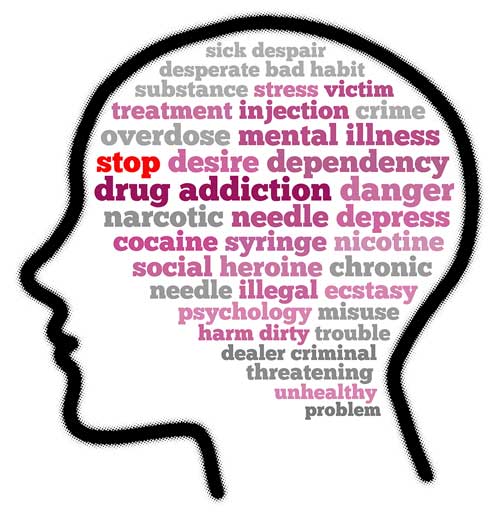 It’s not that bad. People suffering from addiction tell themselves this over and over again. Don’t remember what happened last night? It’s not that bad. Getting high every day? It’s not that bad. Failed out of college and can’t keep a job? It’s not that bad. Family and friends fearing for my life? They’re overreacting because it’s really not that bad. Overdosing, getting arrested and sharing needles…okay, maybe that’s bad. But compared to that guy over there…it’s not that bad! Drug addiction can take people to dark places–and delusional thinking, caused by chemical changes in the brain, can keep them there.
It’s not that bad. People suffering from addiction tell themselves this over and over again. Don’t remember what happened last night? It’s not that bad. Getting high every day? It’s not that bad. Failed out of college and can’t keep a job? It’s not that bad. Family and friends fearing for my life? They’re overreacting because it’s really not that bad. Overdosing, getting arrested and sharing needles…okay, maybe that’s bad. But compared to that guy over there…it’s not that bad! Drug addiction can take people to dark places–and delusional thinking, caused by chemical changes in the brain, can keep them there.
In truth, the consequences of drug addiction affect physical, mental, social, and spiritual health, often severely.
Physical Consequences
The physical consequences of addiction are perhaps the most obvious to the individual. Scrapes, bruises, track marks, lip burns, skin abscesses, diseases (like HIV or Hepatitis C), increased tolerance, physical dependence, and withdrawal symptoms are all physical consequences. Physical and sexual abuse can also be consequences of addiction.
Mental Consequences
Some of the common mental consequences are depression, anxiety, mood swings, and psychosis. While psychosis is usually a direct result of drug use, depression, anxiety and mood swings can be both a direct and indirect result and can persist even after drug use has stopped. When a person suffers from addiction and also has a mental health disorder, whether it began before or after substance use, this is called a dual diagnosis. Dual diagnosis treatment is most effective in these cases.
Social Consequences
The social consequences of addiction are usually the most talked about. Dropping out of school, job loss, hospitalizations, legal problems (DUI, possession charges, etc.), jail time, troubled relationships, and being the perpetrator or victim of any kind of abuse–all of these are social consequences of drug addiction. Sometimes, a person who is addicted does not seem to face any of these problems. They may hold down a job, get a degree, and maintain relationships. This makes it harder to detect addiction and fosters denial. But addiction is a progressive disease, and eventually, even someone in a functional addiction will experience social problems if they do not get help for their addiction.
Spiritual Consequences
The spiritual consequences of addiction happen to anyone, whether they are religious, agnostic, or atheist. These types of consequences include feeling hopeless, lonely, scared, guilty, ashamed, dishonest, perpetually unhappy, and restless for no apparent reason. As with the mental consequences, spiritual disconnection can become more apparent after drug use has stopped.
The consequences of drug abuse may look different for everyone. What may seem mild and insignificant to one person may feel like the end of the world to another. Regardless of individual differences, everyone can recover from addiction with treatment, ongoing support, and a sense of purpose.
